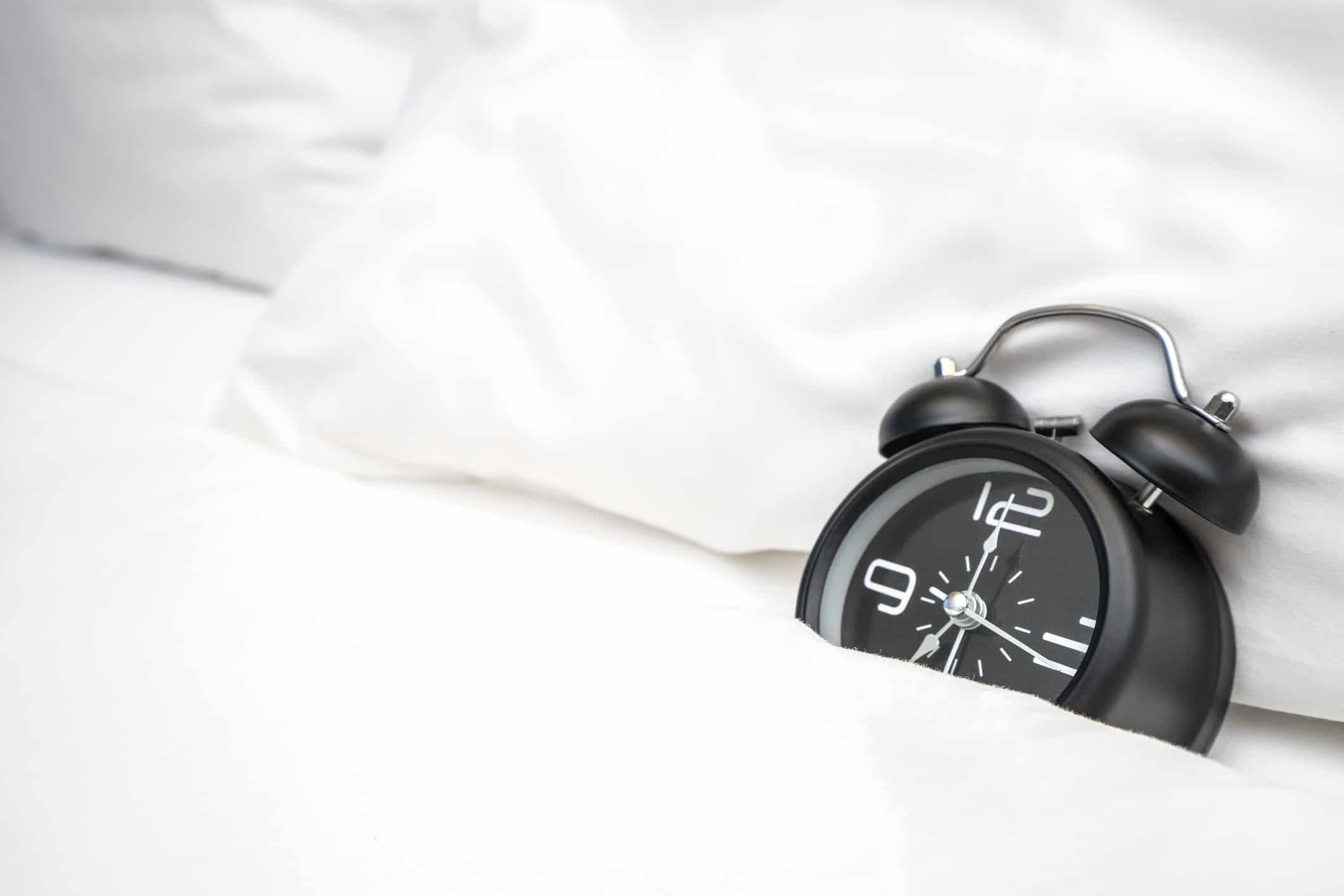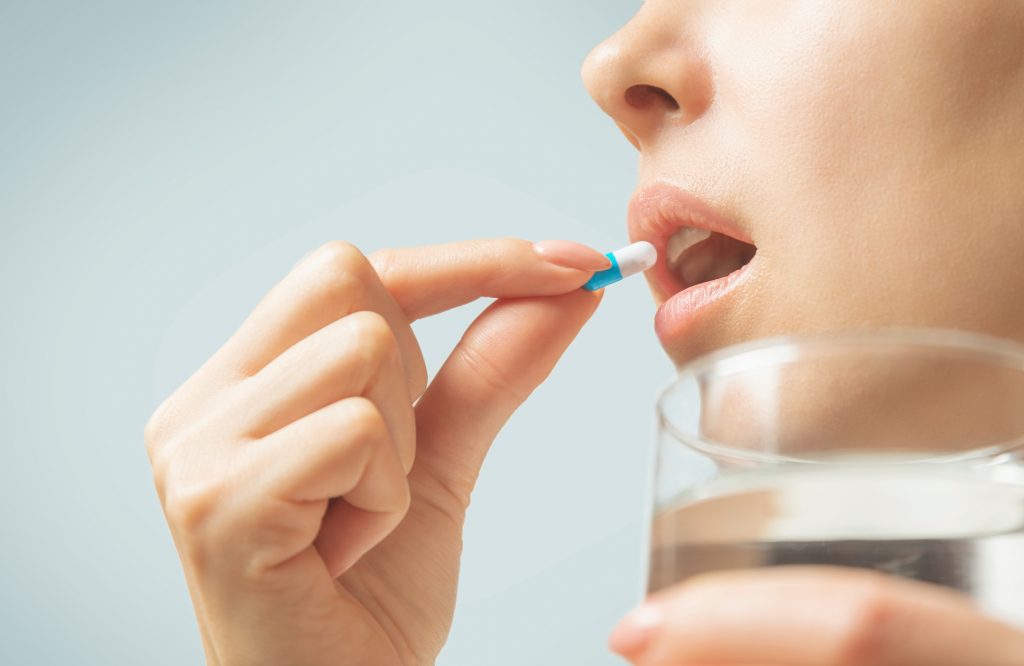Can You Take a Probiotic Before Bed?

As an affiliate, we may earn a commission from qualifying purchases. We get commissions for purchases made through links on this website from Amazon and other third parties.
A lot of people have no idea if it is okay to take a probiotic before bed. The answer to that question depends on the type of probiotic you are taking, but generally speaking, it should be fine.
There has been researching done that shows taking probiotics in the morning and evening can help with bowel movement frequency and regularity.
If you are not trying to treat any specific ailment or condition, then there is no reason why you would need to avoid taking your probiotics at night.
A Probiotic is good for your health – it helps with digestion and also keeps your immune system strong. It has anti-parasite, anti-viral, anti-fungal, and anti-inflammatory properties, which makes it ideal for a healthy immune system.
Clinical studies into how a probiotic before bed affects you
A 2008 study found that taking probiotic supplements before bed can help you sleep better. In the study, participants were given a placebo for three weeks followed by either bifidobacteria or yogurt containing Lactobacillus acidophilus and Bifidus bacteria strains.
Participants who took the probiotics slept an average of 44 minutes more per night than those on placebo.
This may be due to how gut microbes interact with brain function: when our microbiome is healthy, it produces compounds like phenylethylamine (or PEA) which promote feelings of wellbeing as well as production and release of melatonin – this helps regulate your circadian rhythm so you’re ready for deep restful sleep at nighttime.
If your gut isn’t happy though, then your sleep can be disrupted and so too can your circadian rhythm.
That’s why it’s so important to pay attention to the gut health of children today, as they are forming healthy habits early on that can lead to more restful nights in the future.
Interestingly, those who took probiotics had better quality sleep too. This may be because gut bacteria help us digest our food better which means we’re getting more nutrients from the food we eat, and that’s been linked to a boost in quality sleep.
Not only did people who took probiotics sleep better and longer, but they also said they felt less fatigued during the day than those on placebo.
This may have something to do with the PEA produced by gut bacteria which is associated with feelings of wellbeing, but also possibly due to a reduction in inflammation. Research has shown that good quality sleep reduces markers of inflammation in your body.
Another study found that people who drank a probiotic-filled drink before bed was less likely to experience digestive problems when they woke up in the morning.
It’s important for every person to take care of their gut and ensure it is as healthy as possible, so be sure you’re getting all your vitamins from food or supplements.

What if you are on antibiotics as well?
If you are taking antibiotics for another condition, you shouldn’t take probiotics at the same time. Antibiotics kill off all bacteria in the body including probiotics. So, they will also eliminate all the bacteria that live in your digestive tract.
If you are taking probiotics to treat an existing bacterial infection, you might want to check with your doctor to make sure that they will stay in your system once you’re done with the antibiotic course.
You might find that a probiotic supplement could be useful after taking antibiotics to prevent a relapse.
Do you have allergies or food intolerance?
These can affect whether or not you can take a probiotic. Most probiotics contain the same ingredients as all foods. Occasionally, you might find that you have to go to a specialist to get the right probiotic.
If you suspect you have a food intolerance, you will probably want to read up on it or talk to your doctor or nutritionist.
So, is it right to take a probiotic before bed?
The question of whether or not taking a probiotic before bed is beneficial has been debated for quite some time. Some studies have shown that good bacteria can help regulate sleep cycles and improve the quality of slumber while other clinical trials found no effects.
The official word from the American Academy of Sleep Medicine (AASM) is that there is insufficient evidence to support this claim, but you may want to try it out yourself.
A recent study has found that the bacteria in our guts are most active at night and can potentially produce harmful substances when disturbed during sleep.
This means that if you take a probiotic at night, these good bacteria could become disrupted and cause more harm than good to your body.
So what could you do instead?
Well, we recommend waiting until after breakfast to take your probiotics. One of the best things about morning time is the abundance of fresh fruits and vegetables available for consumption.
Why not enjoy one as soon as possible after waking up? The fiber from these foods will help feed the probiotic bacteria and get it out of the stomach quickly.
So you could have a kefir drink with fresh berries and grated apple to get those good bacteria out there while they’re most active.
Not only that, the morning time is an excellent opportunity to eat foods rich in antioxidants, which reduce inflammation and boost energy.
Fresh orange juice or even just a few segments can help kickstart your day, and there are tons of other foods you could have.
Are you a coffee drinker? Why not try having it with lemon juice so you can get the antioxidants from the citrus fruit along with a little added vitamin C to boot!
Final thoughts
Like most things, the answer is not necessarily black and white. For some, you may have a better overall feeling by taking them in the morning, whereas for others it might be at night. only you will know once you try it and see how you feel after several days.
Ultimately, taking a probiotic at night probably makes more sense as the probiotic will have more time in your gut, and the good bacteria can get to work healing your digestive issues.
And that’s exactly what you want if you’re investing in a supplement.
A quick reminder ..
Probiotics.tips aim to provide the most up-to-date information, help, and advice for YOU to make informed decisions. If you are unsure or uncertain and require more clarity, please reach out to us and we will gladly come back and advise you as best we can.
The best means to reach us is via email at info@probiotics.tips or fill out the form on our Contact Us page – click here.
Probiotics.tips
About Us
Our goal is to empower you with concise probiotic guidance for a healthier gut. With expert advice, we provide the knowledge to improve your well-being and navigate the world of probiotics efficiently, ensuring you achieve optimal gut health.
- Can You Take Probiotics While Water Fasting?
- Does Fasting Help Microbiome Diversity and Functionality?
- Does Fasting Help Your Bowels
- Does Fasting Help Probiotics? Understanding Gut Health Benefits
- Does Fasting Help the Gut: Understanding the Impact on Digestive Health
Disclaimer
As an affiliate, we may earn a commission from qualifying purchases. We get commissions for purchases made through links on this website from Amazon and other third parties.
Check these out on Amazon









